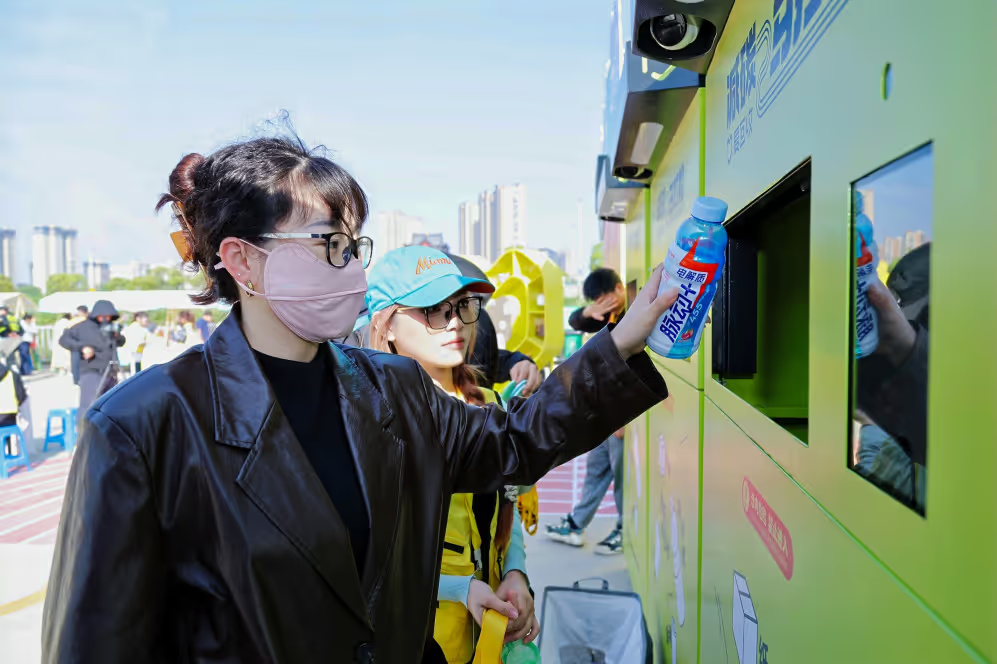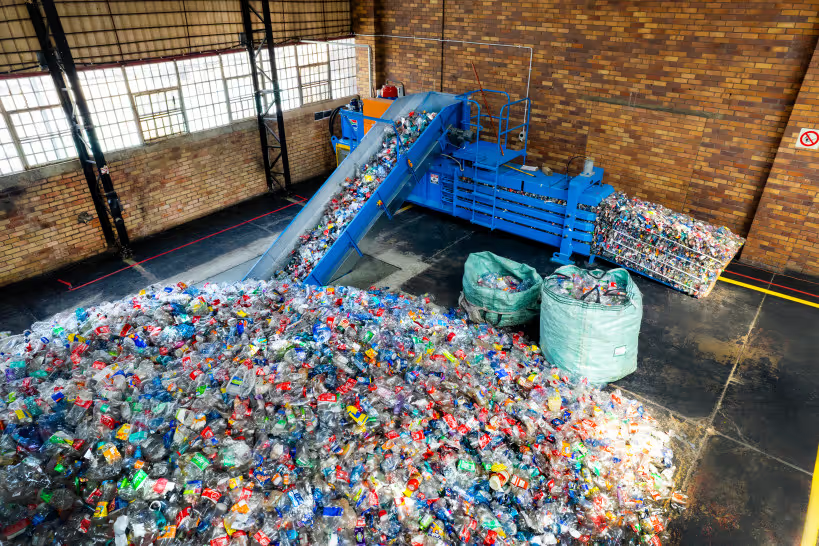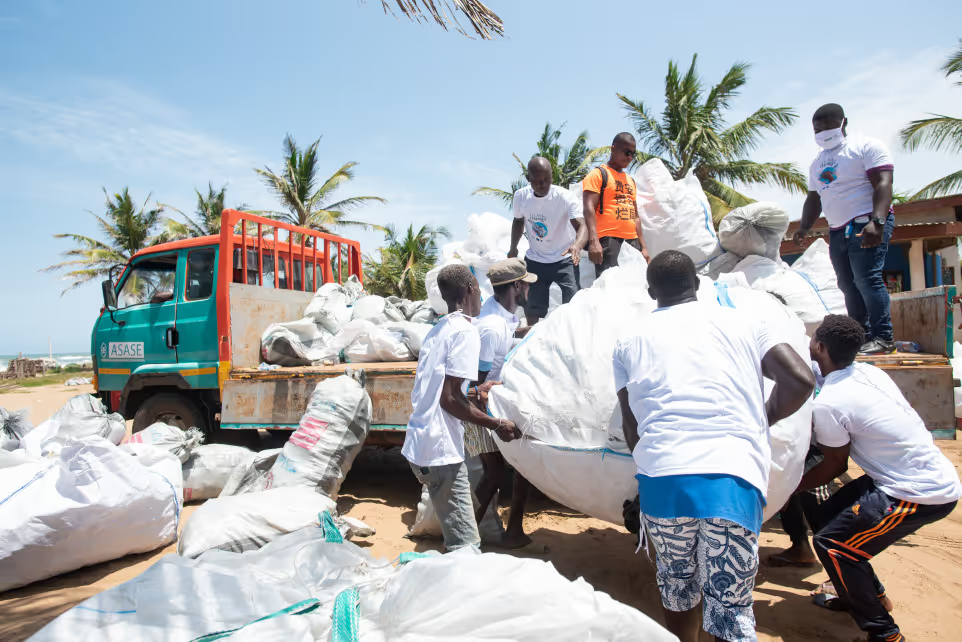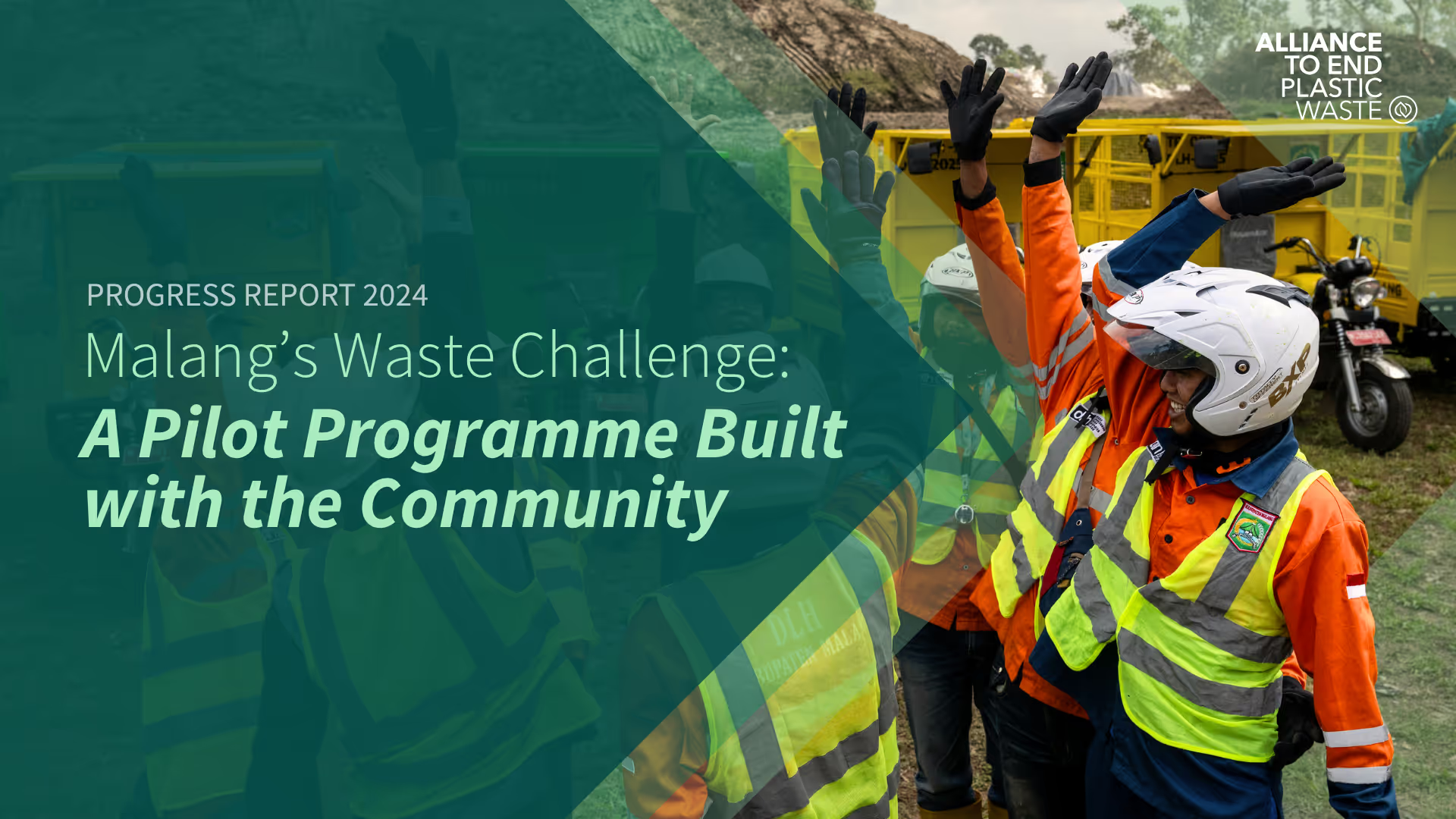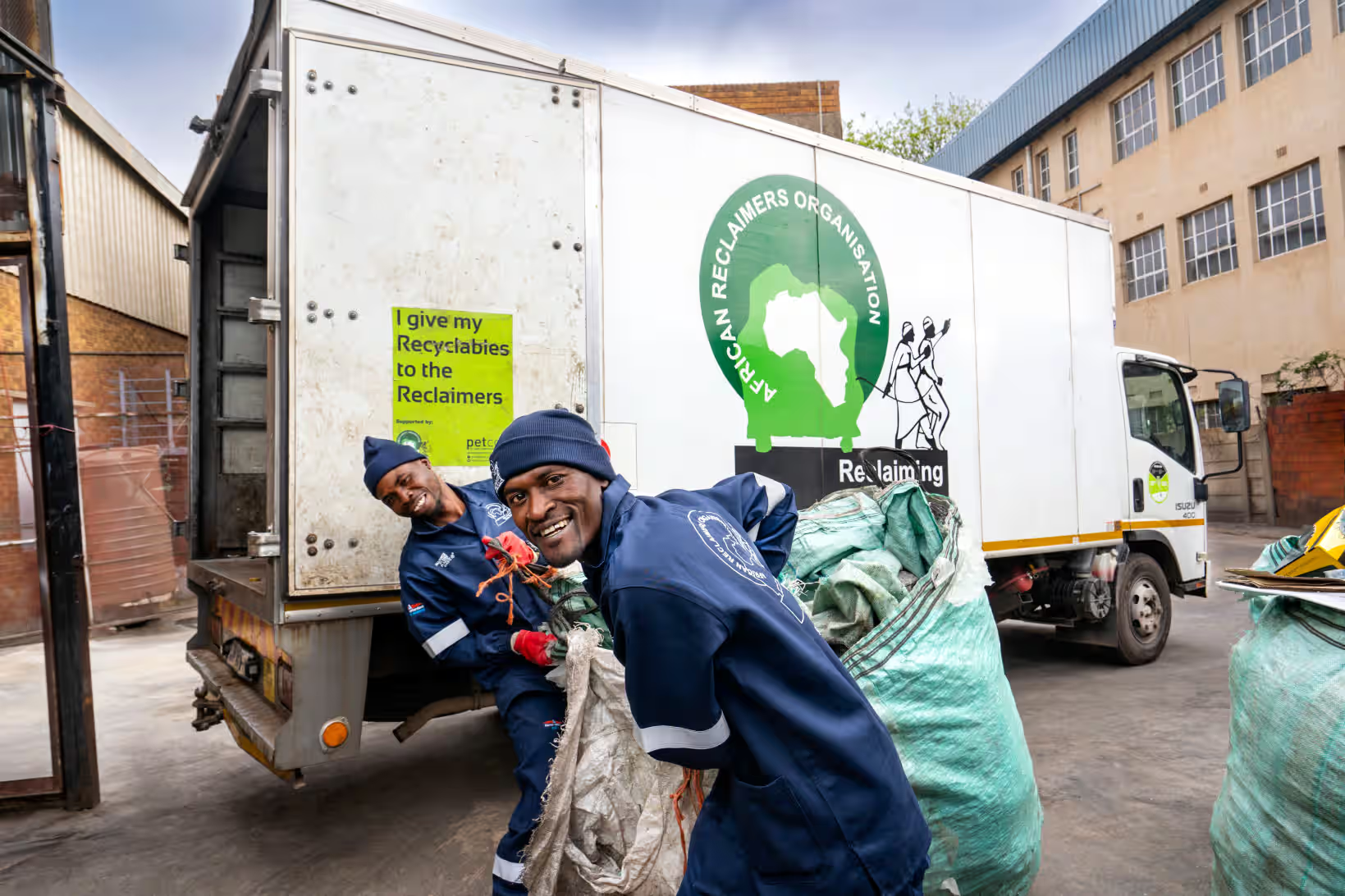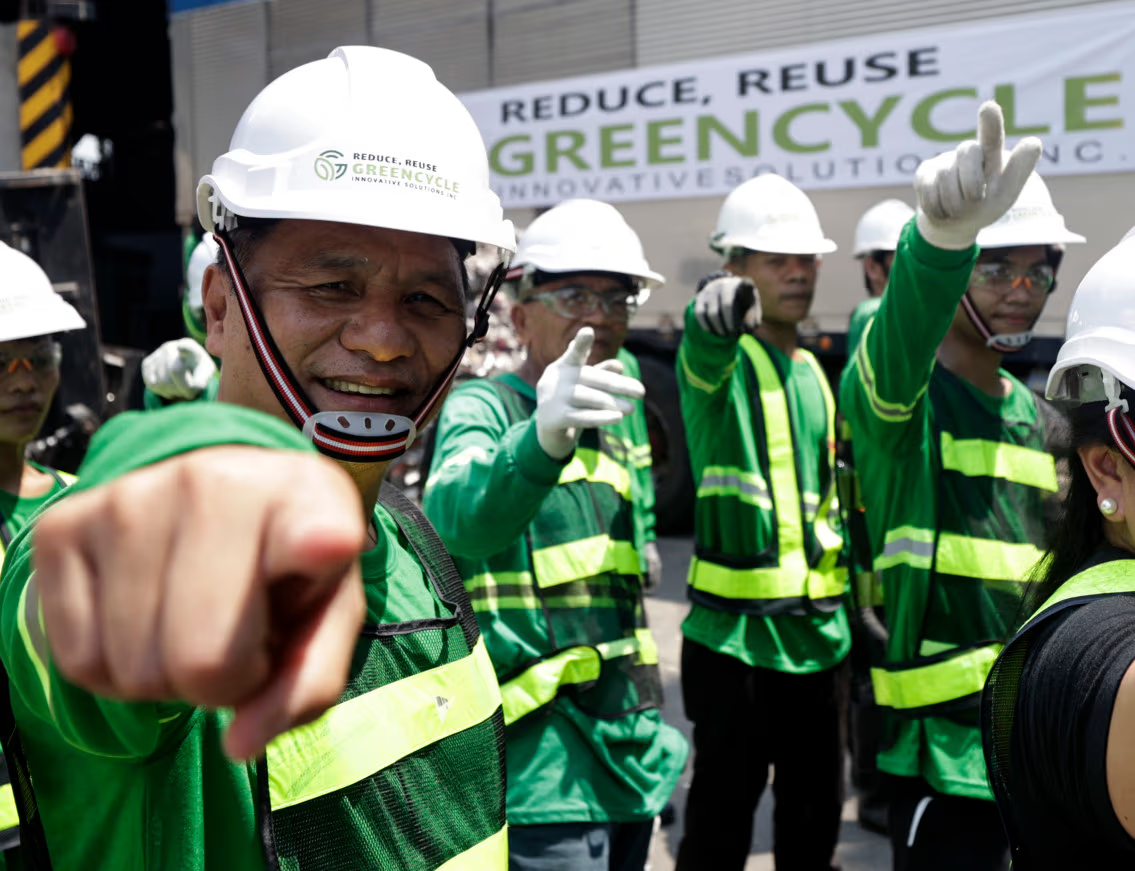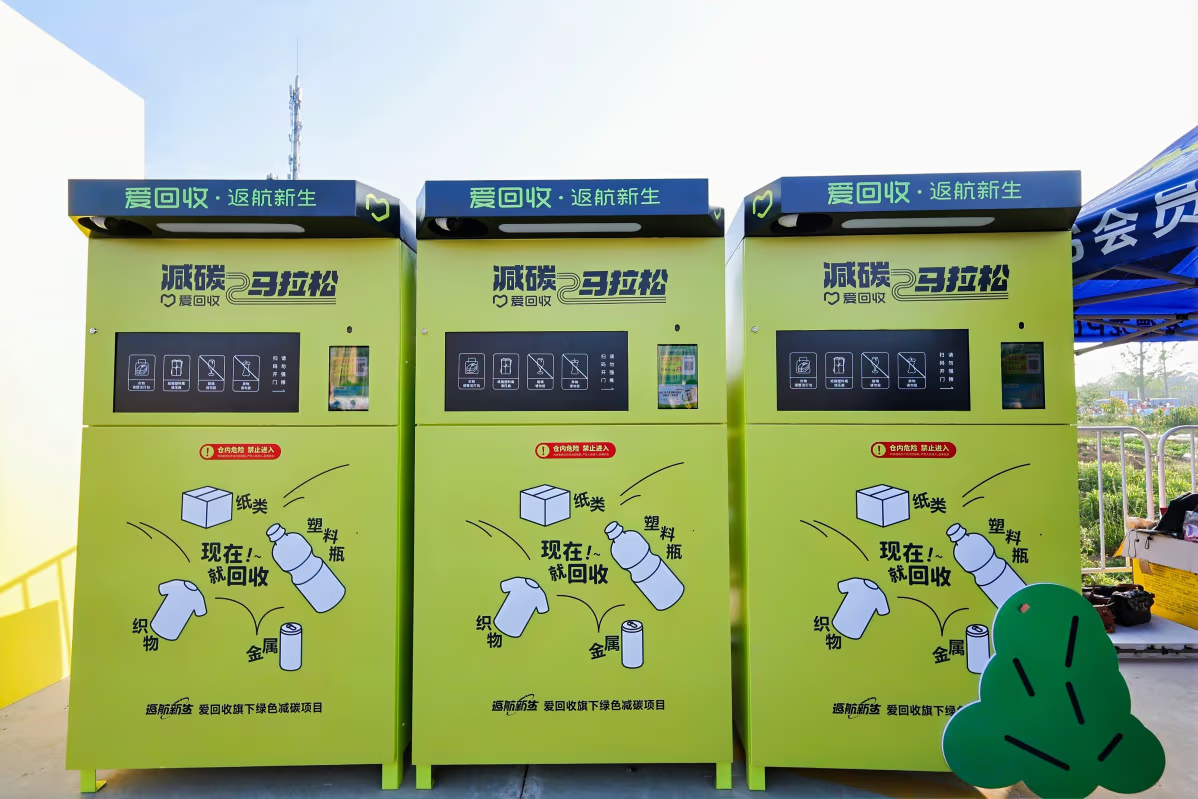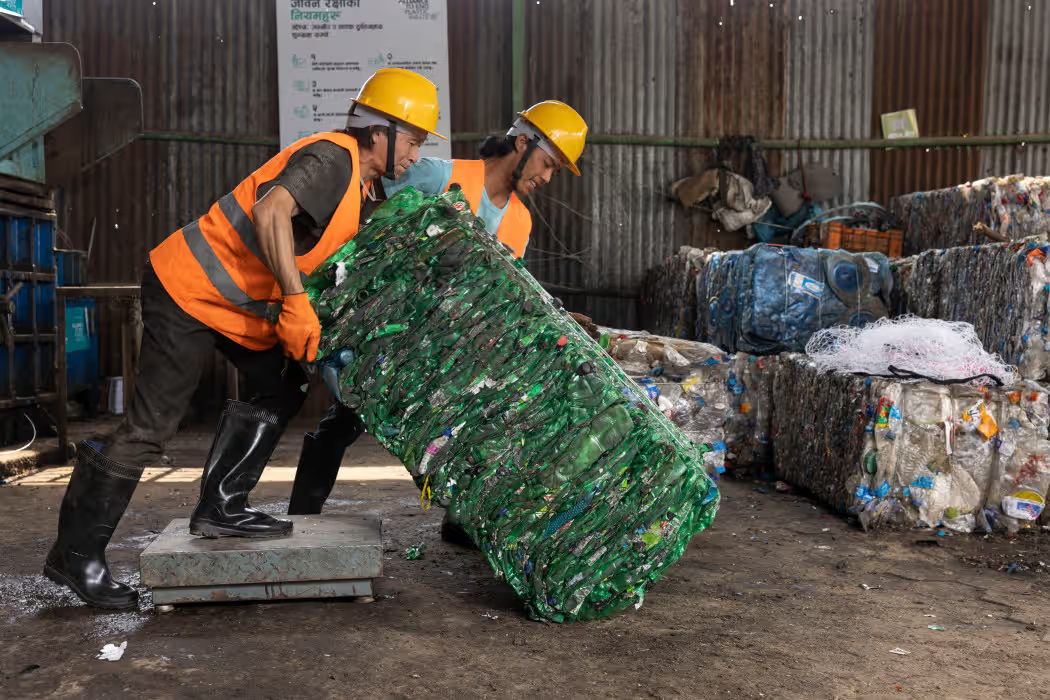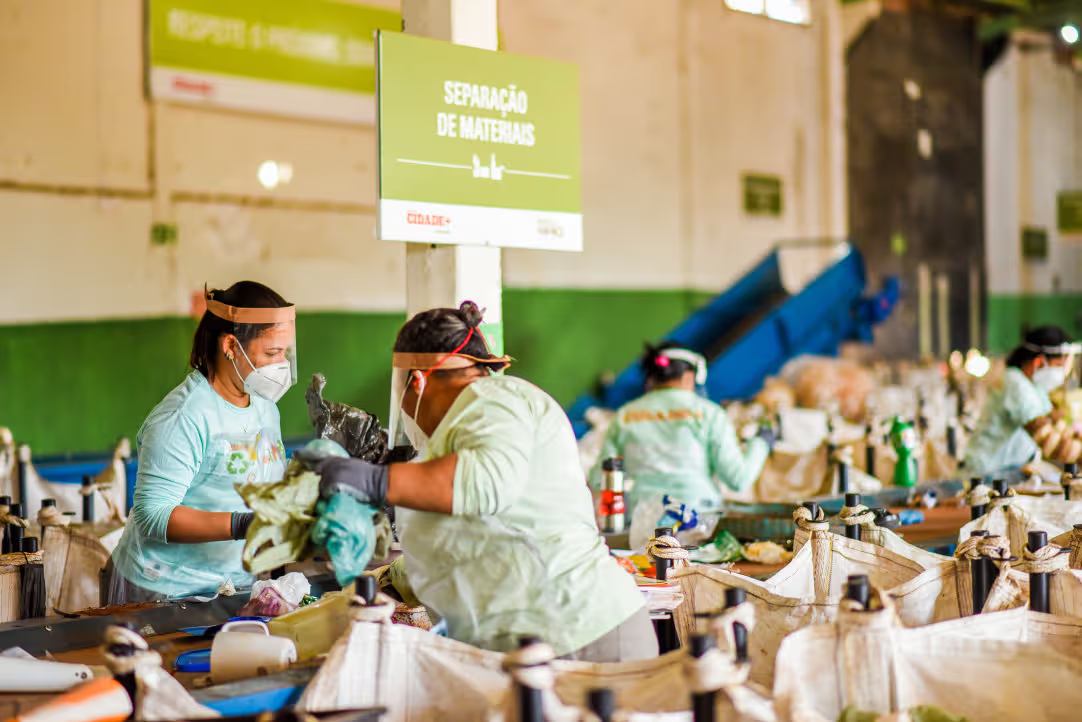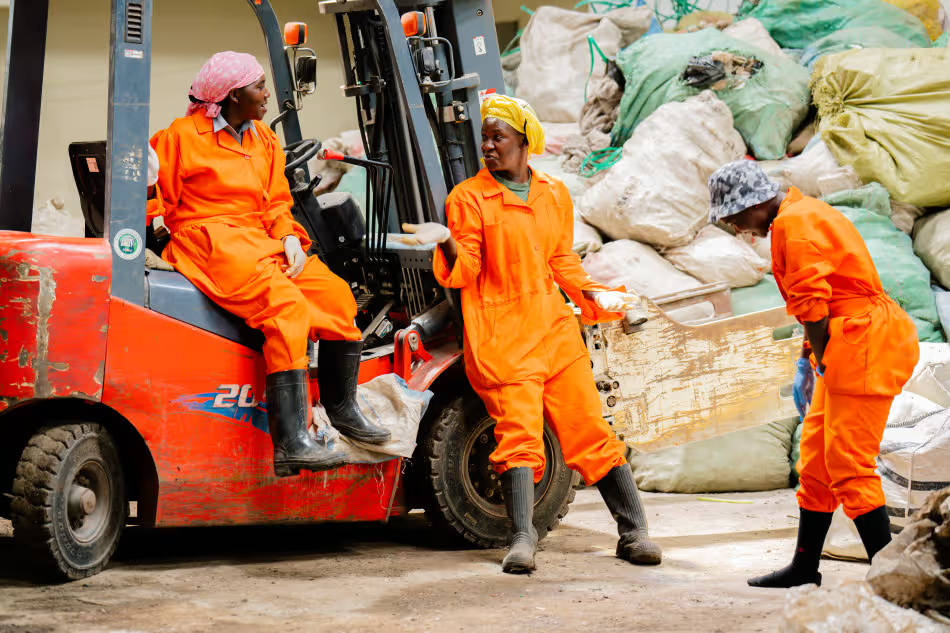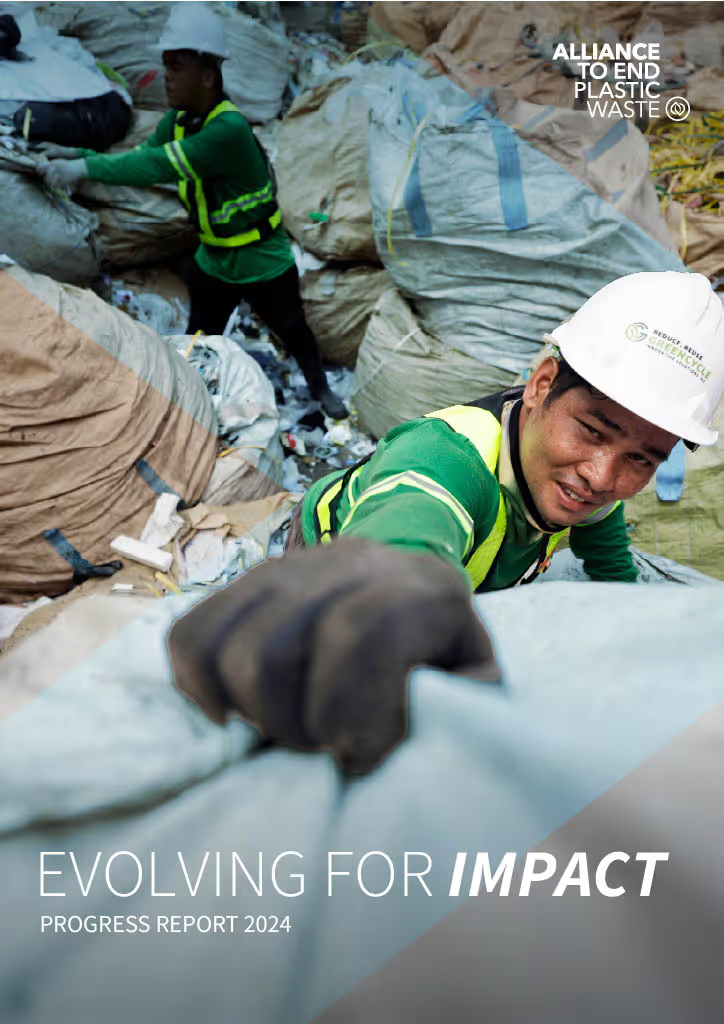Evolving forimpact
Progress Report 2024
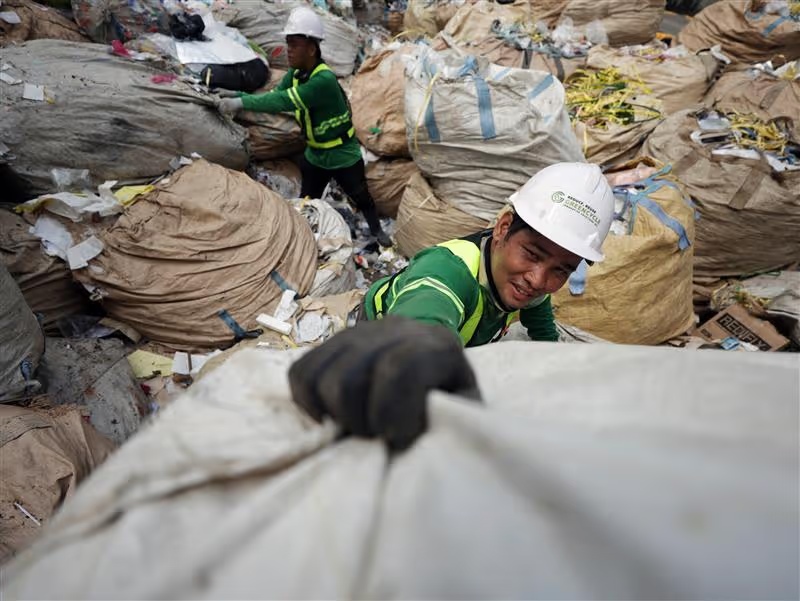
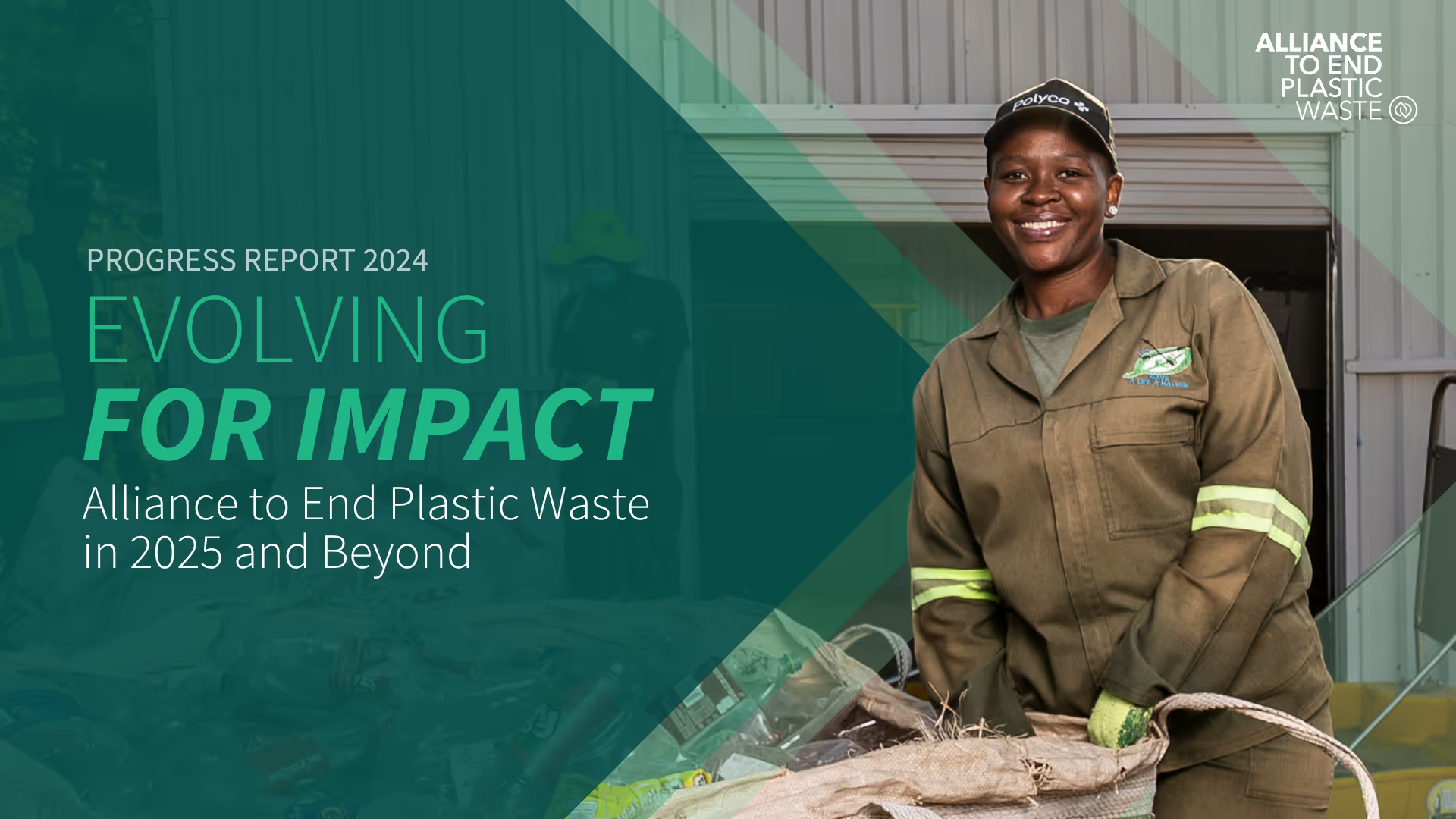
impactmetricsat aglance
In 2024, our impact continued to increase.
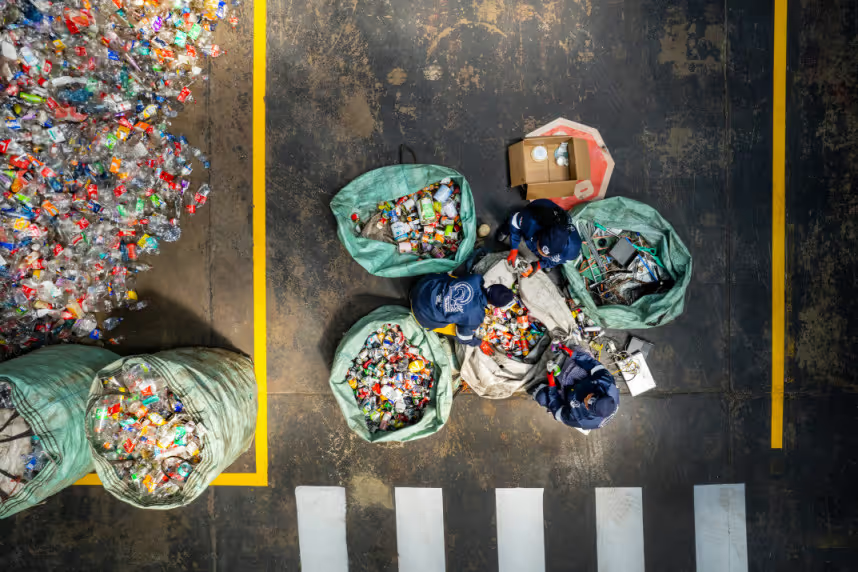
Understanding and accurately measuring the effects of our work is integral to providing an accurate view of our progress. It informs dialogue and enables trusted engagement with stakeholders as we fulfil our purpose. We remain committed to further strengthening our impact reporting to meet an independent limited assurance process, so that the impact presented is accurate, robust, and aligns to international reporting standards.
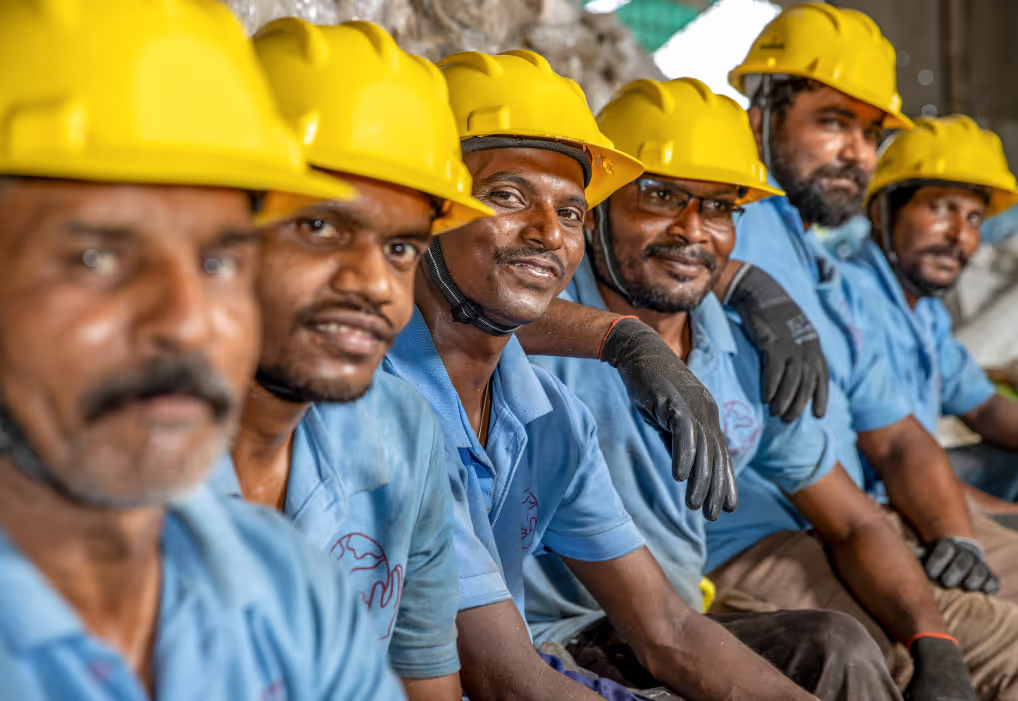
Our Impact Metrics Framework is designed to represent the most relevant impact areas from our activities including tracking and reporting key ‘enabling’ metrics that influence systems change. More details on the Impact Metrics Framework can be found in our Basis of Reporting 2024.
Alliance-funded projects
Cumulative Impact since 2019
Assured by DNV. Exceptions noted separately.
tonnes of unmanaged plastic waste reduced
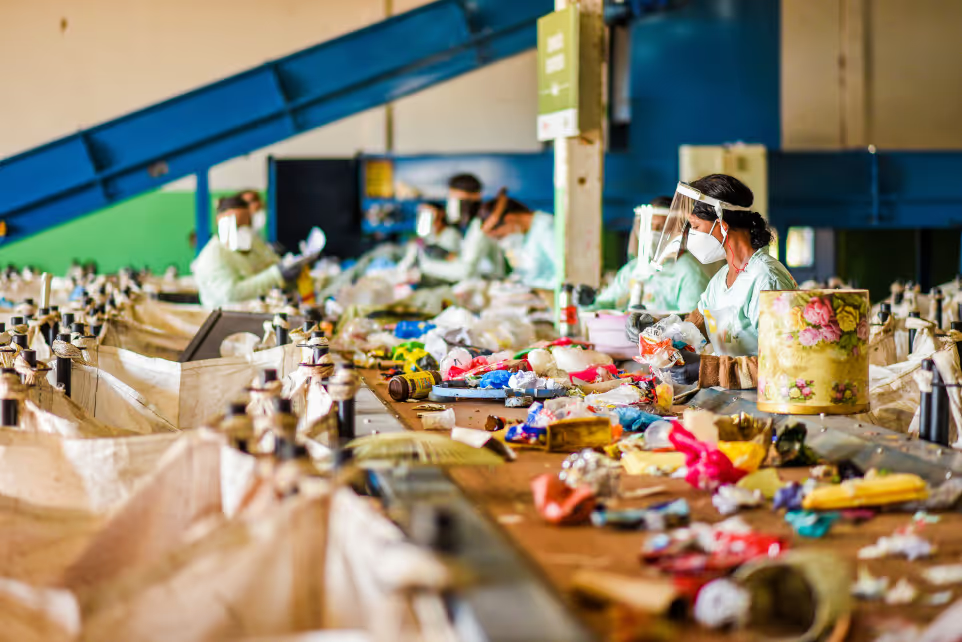
tonnes of plastic waste valorised
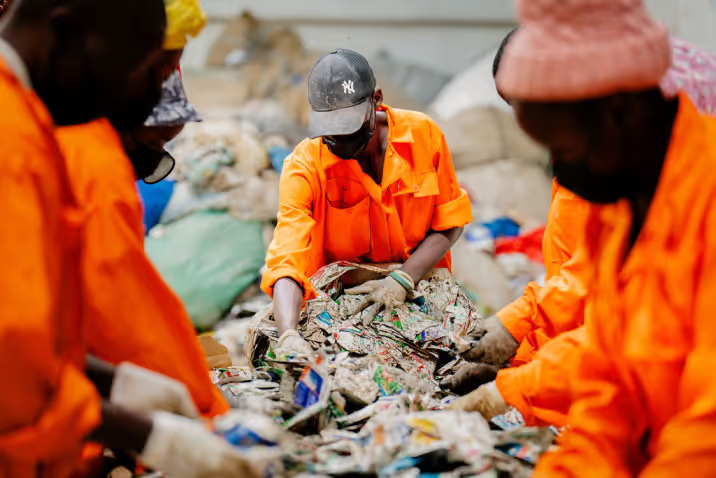
participants reached through education programmes

projects demonstrating Solution Models
Assured for up to 2023 reporting period.
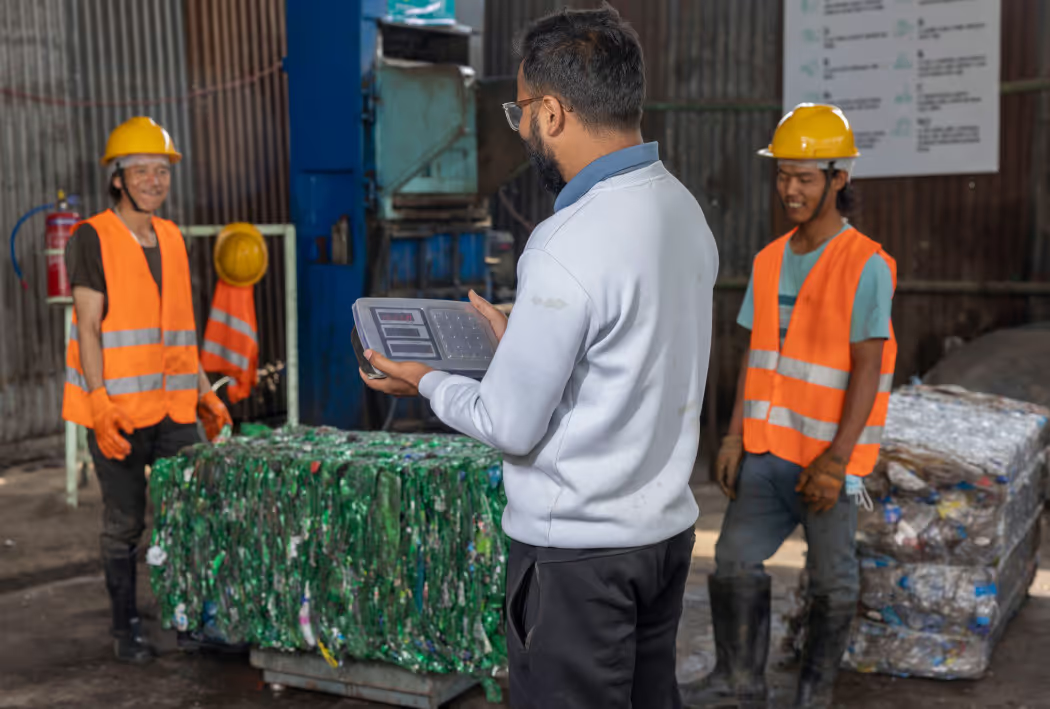
formal jobs created
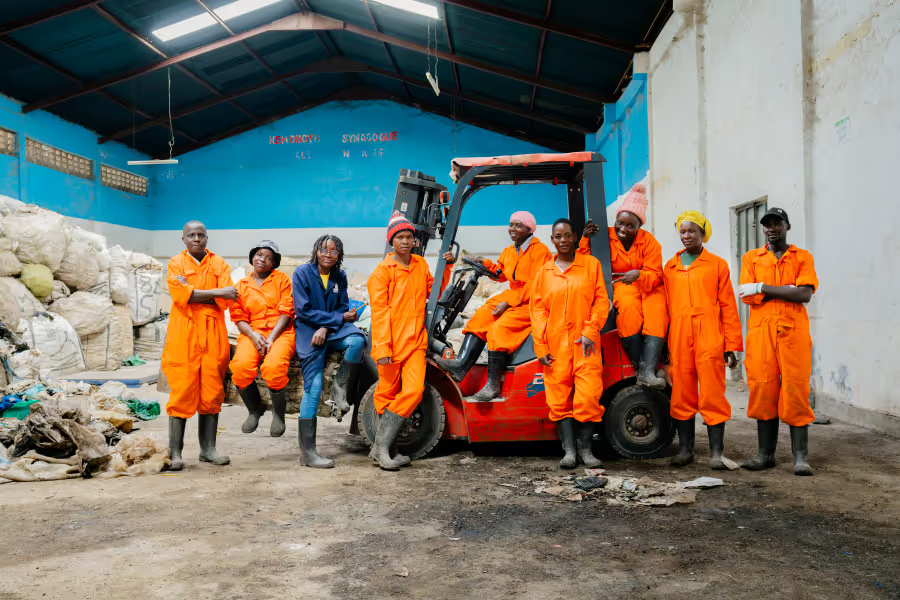
organisations engaged to enable systems change, finance, develop and implement our projects and broader initiatives
Assured for 2024 reporting period.
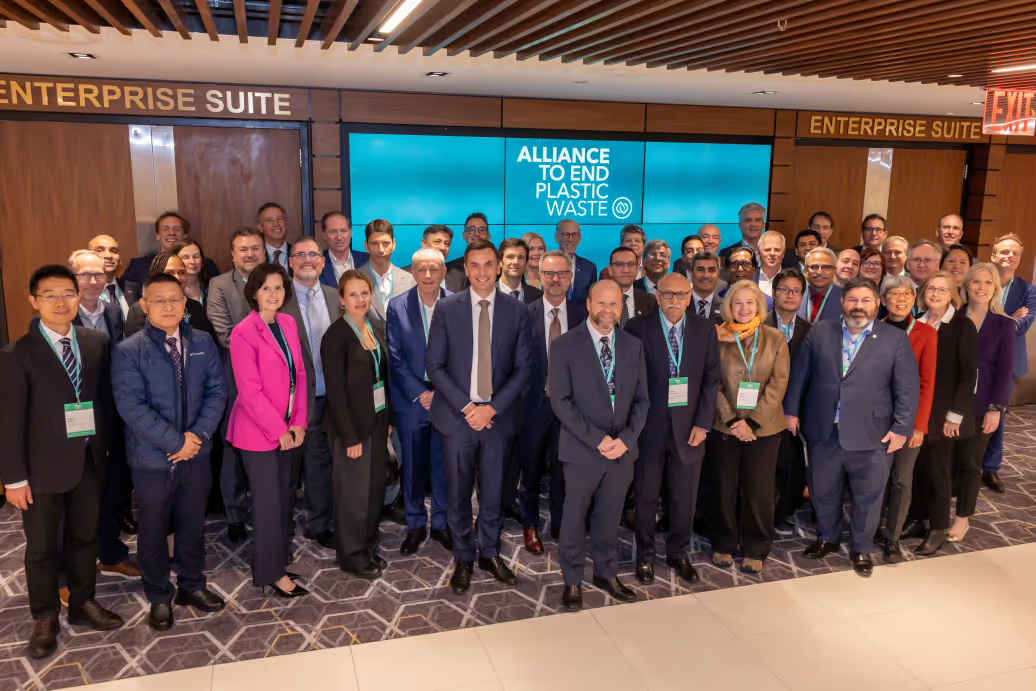
of total revenue collected
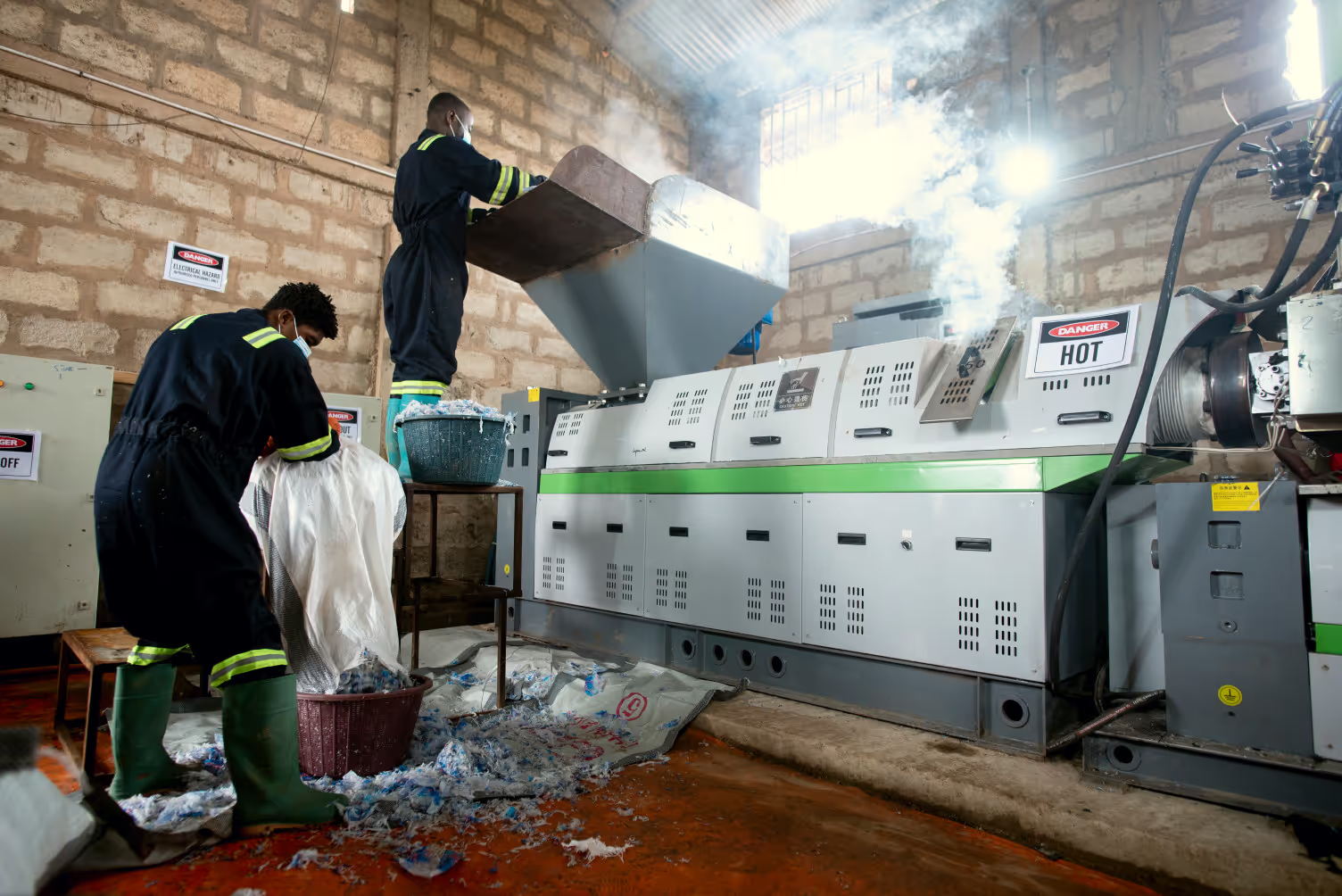
has been allocated to mission-related activities
Catalysed Capital
Cumulative Impact since 2019
Assured by DNV
of funding commitments by other parties and impact investors
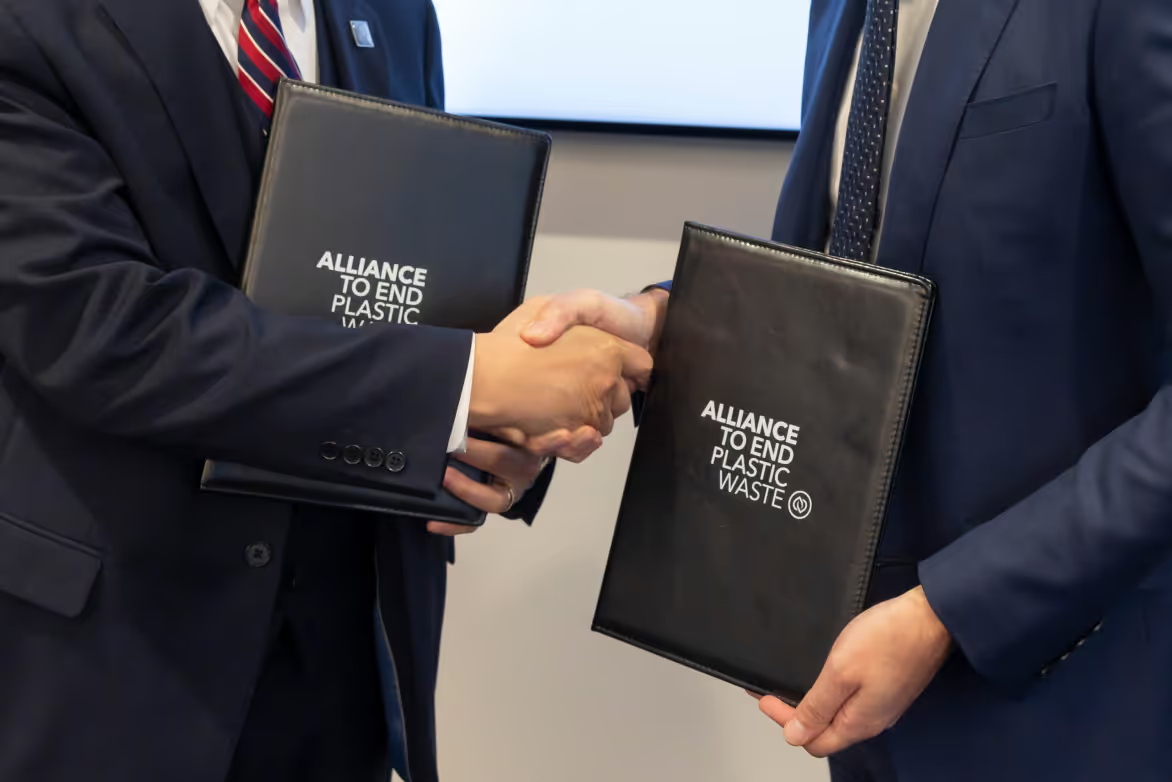
of catalysed funding that have been allocated to mission-related activities
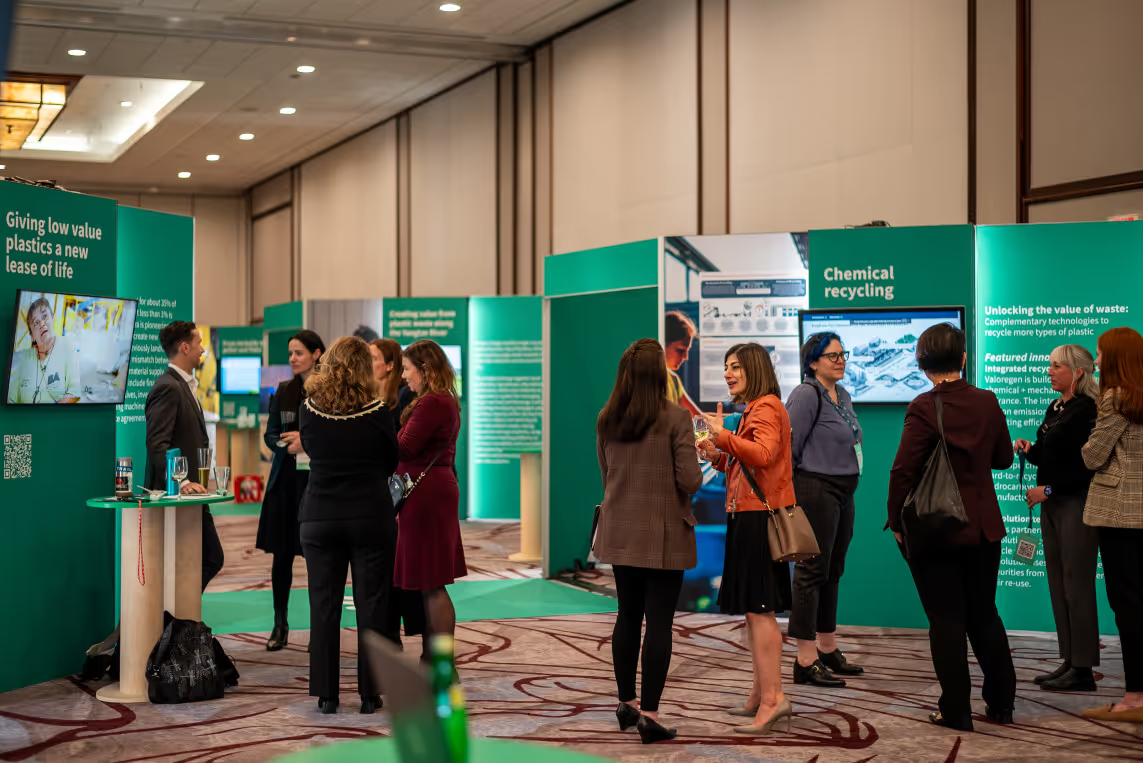
In 2024, we made an important decision to evolve our strategic focus.
As a global laboratory, we invested in new technologies, solutions, and financial models to end plastic waste and pollution. This approach yielded significant progress. But our experience from funding projects around the world revealed greater opportunities to build a united ecosystem to achieve impact at speed and scale.
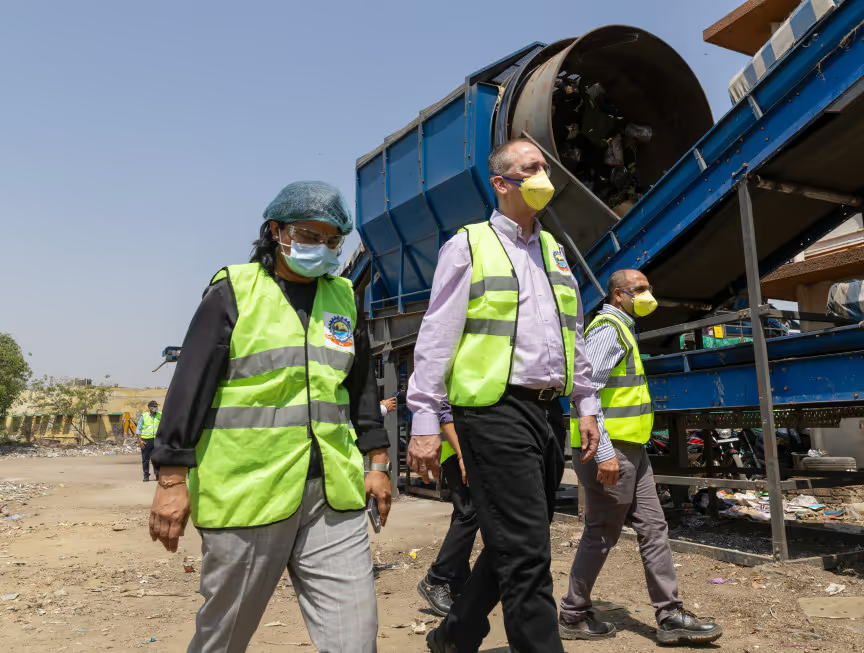
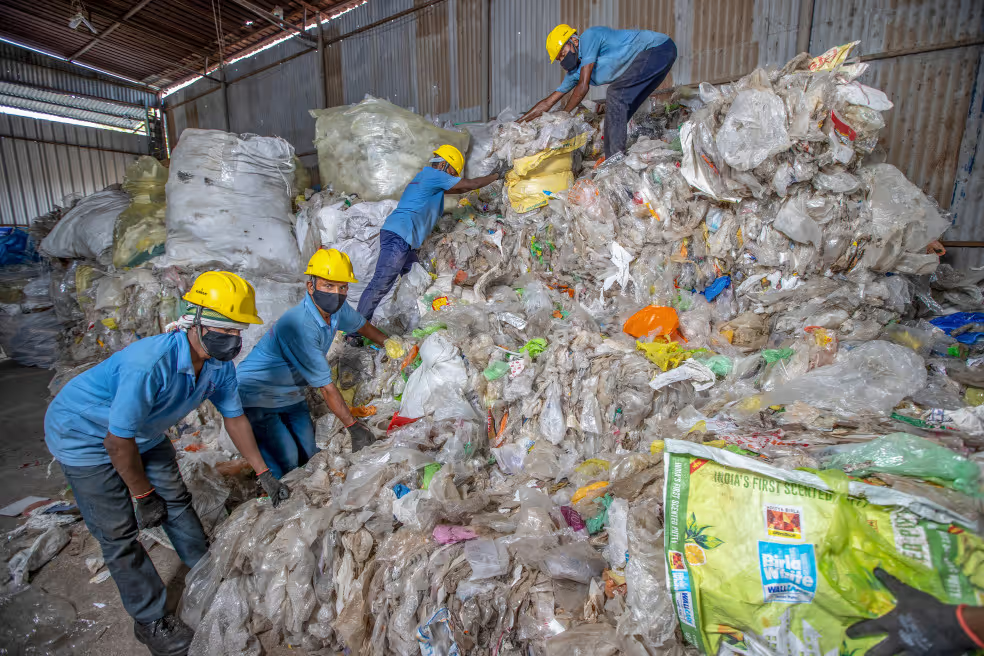
Working closely with our members, we are shifting our strategic focus, moving away from smaller, individual projects to larger-scale integrated programmes.
These programmes are anticipated to be co-developed with range of partners, including governments and co-funders.
Our work in selected countries is focused on areas with less mature plastic waste management systems, where unmanaged waste is significant. We align our efforts with national priorities to drive the systems change needed to reduce plastic pollution and improve recycling rates.
Separately, our other work will nurture solutions and identify the key levers to address the most persistent barriers to plastic circularity.
Three country programmes were approved in December 2024 — Indonesia, South Africa, and India — along with one thematic programme focused on flexibles plastics. Others will follow.
Our Strategy 2030 will help us to build a clear pathway towards a more sustainable, circular economy for plastics.
Download the full report to learn more.
Developingandtestingsolutions
Catalysing Capital
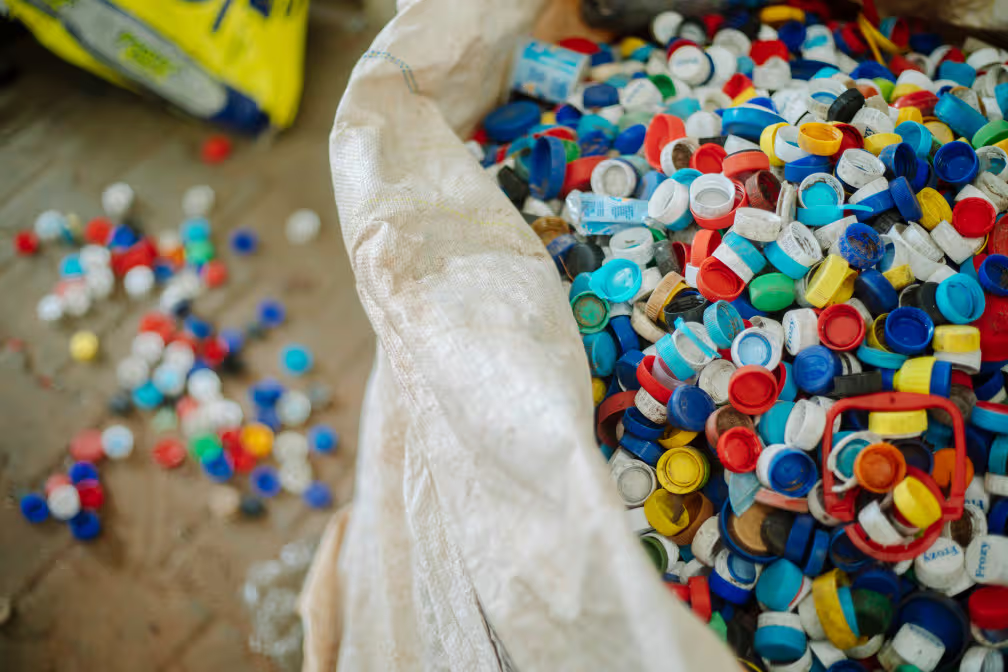
The global plastic waste challenge demands urgent and substantial financial investment, with some estimates suggesting a need for US$2.1 trillion by 2040. While innovative solutions to address plastic leakage exist, many operate at the frontier of what is possible, involving emerging technologies, nascent business models, or untested marketing applications.
These factors increase the perceived financial risk of the solutions, making it difficult for them to obtain capital through traditional investment channels. Without sufficient funding, promising innovations struggle to move from concept to commercial viability, limiting their potential to create lasting impact.
The Alliance is committed to bridging this gap by championing innovative financing mechanisms that unlock the necessary capital to scale solutions and drive systems change.
Our approach involves providing:
- Concessional capital to de-risk solutions and attract private investment;
- Expert technical guidance to enhance project design and execution;
- Access to a global network of public and private stakeholders to foster collaboration and market development.
To learn more about how the Alliance is catalysing capital, watch our video below and download our full report.
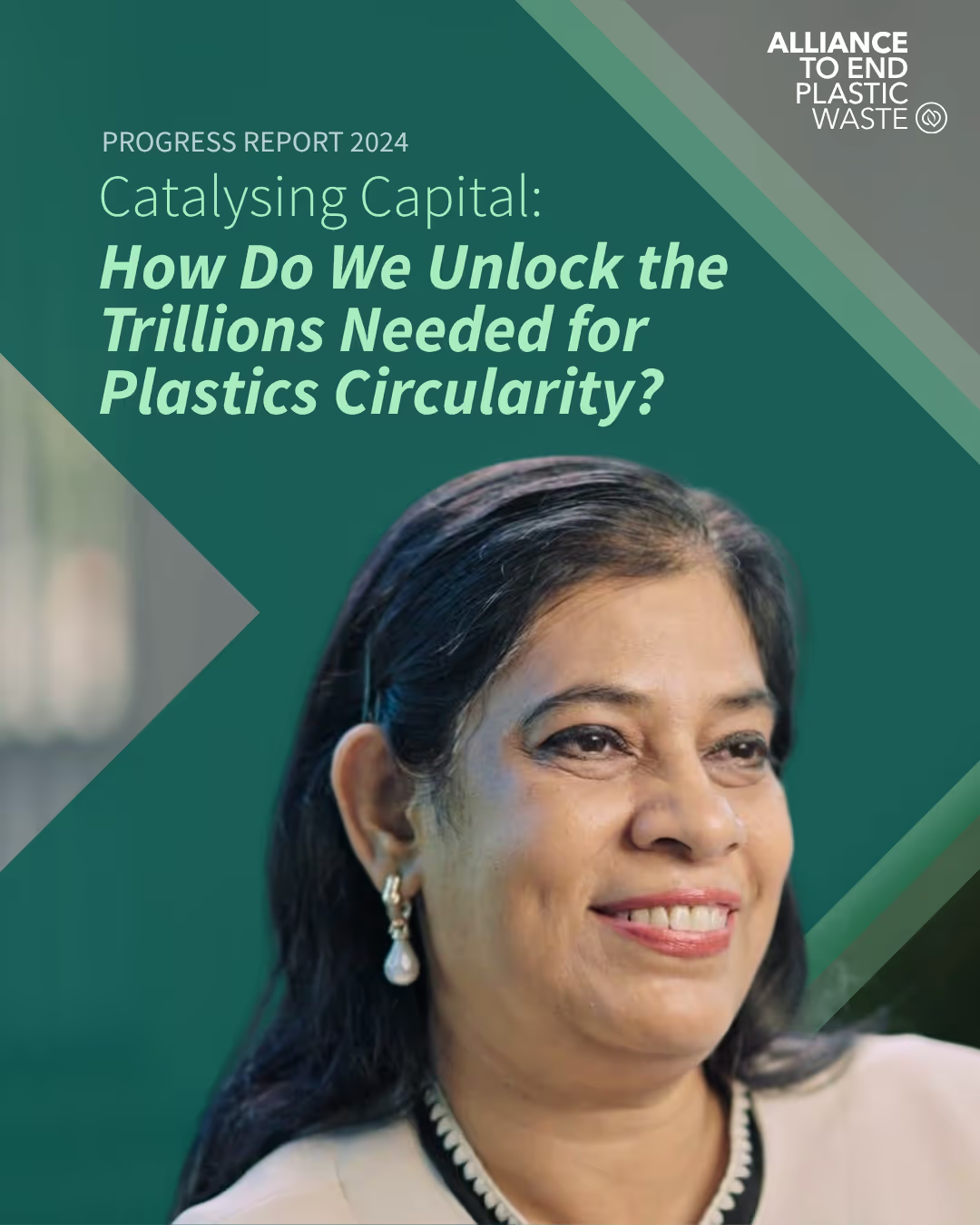
Enabling the Ecosystem
No one organisation can achieve the shift to circularity for plastics alone. Collaboration and information exchange are vital. That is why, in addition to developing real-world solutions, the Alliance focuses on enabling the ecosystem by convening diverse stakeholders across sectors and regions to share experiences and perspectives.
In 2024, we engaged with 740 organisations, directly and through our network of funding recipients, strategic allies, and supporters. Since 2019, our behaviour change and education programmes, developed with the support of our partners, have reached more than 763,000 people.
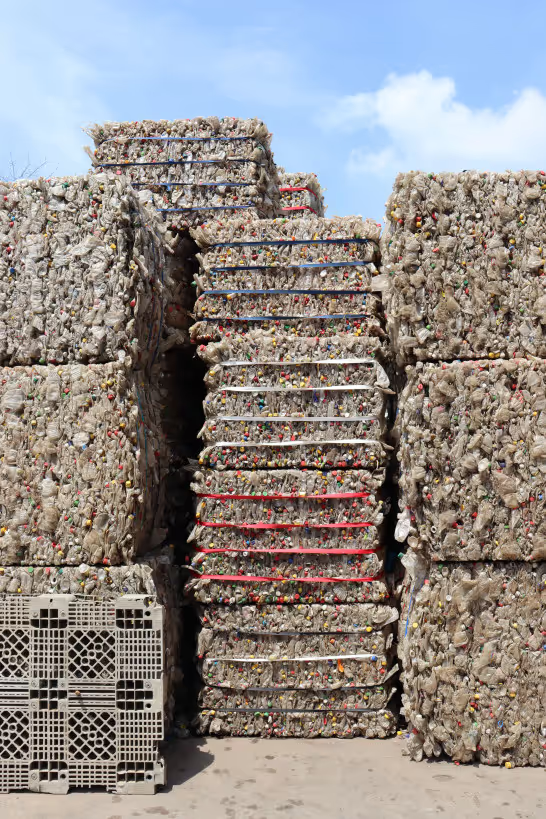
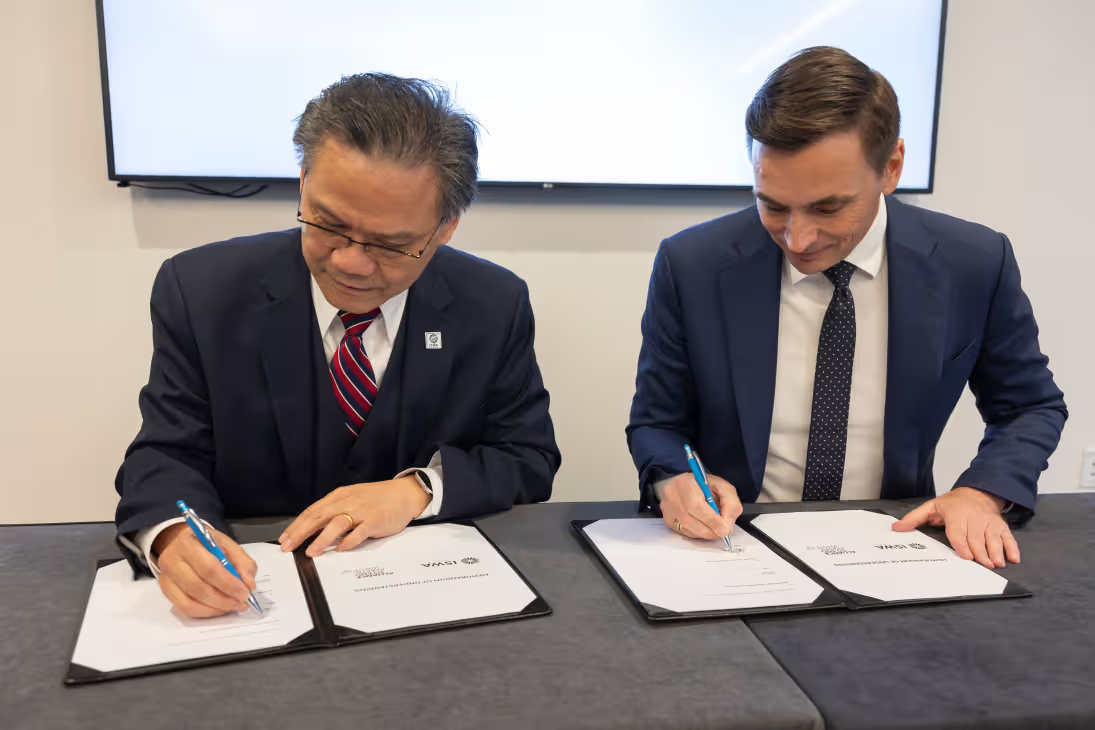
We also convene a range of stakeholders to achieve our broader goal of fostering open and candid dialogue on practical challenges and potential solutions. At the sidelines of the Intergovernmental Negotiating Committee (INC) process, the Alliance hosted roundtables in Ottawa, Bangkok, and Busan, convening representatives from governments, industry, intergovernmental organisations, development finance institutions, civil society, and the informal sector. The sessions covered topics ranging from waste collection systems to Extended Producer Responsibility and financing approaches.
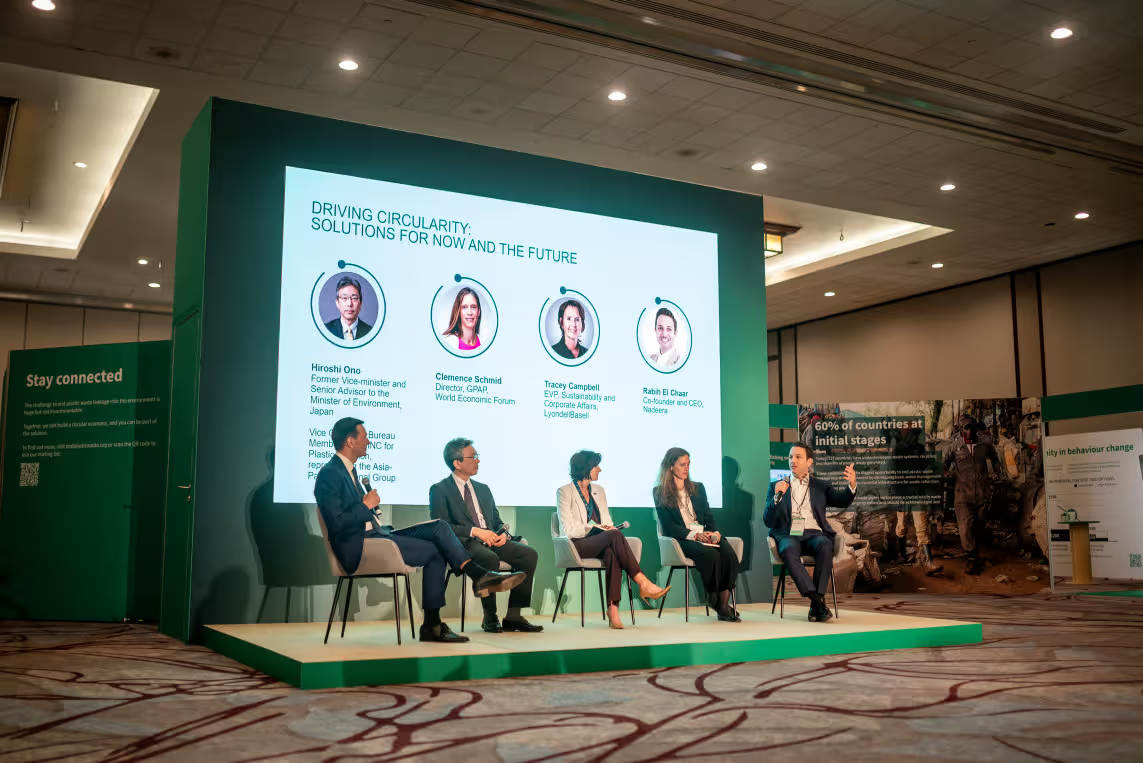
Alongside these dialogues, we showcased the progress we are seeing. Our Circularity in Action: Solutions for Change exhibition at INC-4 spotlighted over 40 real-world innovations, attracting 600+ attendees. Learn more about the showcase from its the digital twin here.
Equity and the Informal Sector
Informal waste workers are the backbone of waste management in many developing economies. Often operating in difficult and dangerous conditions, without protection, recognition or support, they collect nearly 60% of the plastic waste that is recycled globally.
Watch the story of Ms. Phung Lan, a waste collector in Vietnam, for a glimpse into the lives of an estimated 15 million informal waste workers worldwide.
The Alliance is committed to working with informal sector workers. From Kenya to Nepal and Brazil, we support over 13 projects that engage informal workers, many of which focus on improving their working conditions and welfare.
Download the full report to learn more about our work with the informal sector and how it drives social and gender equality.
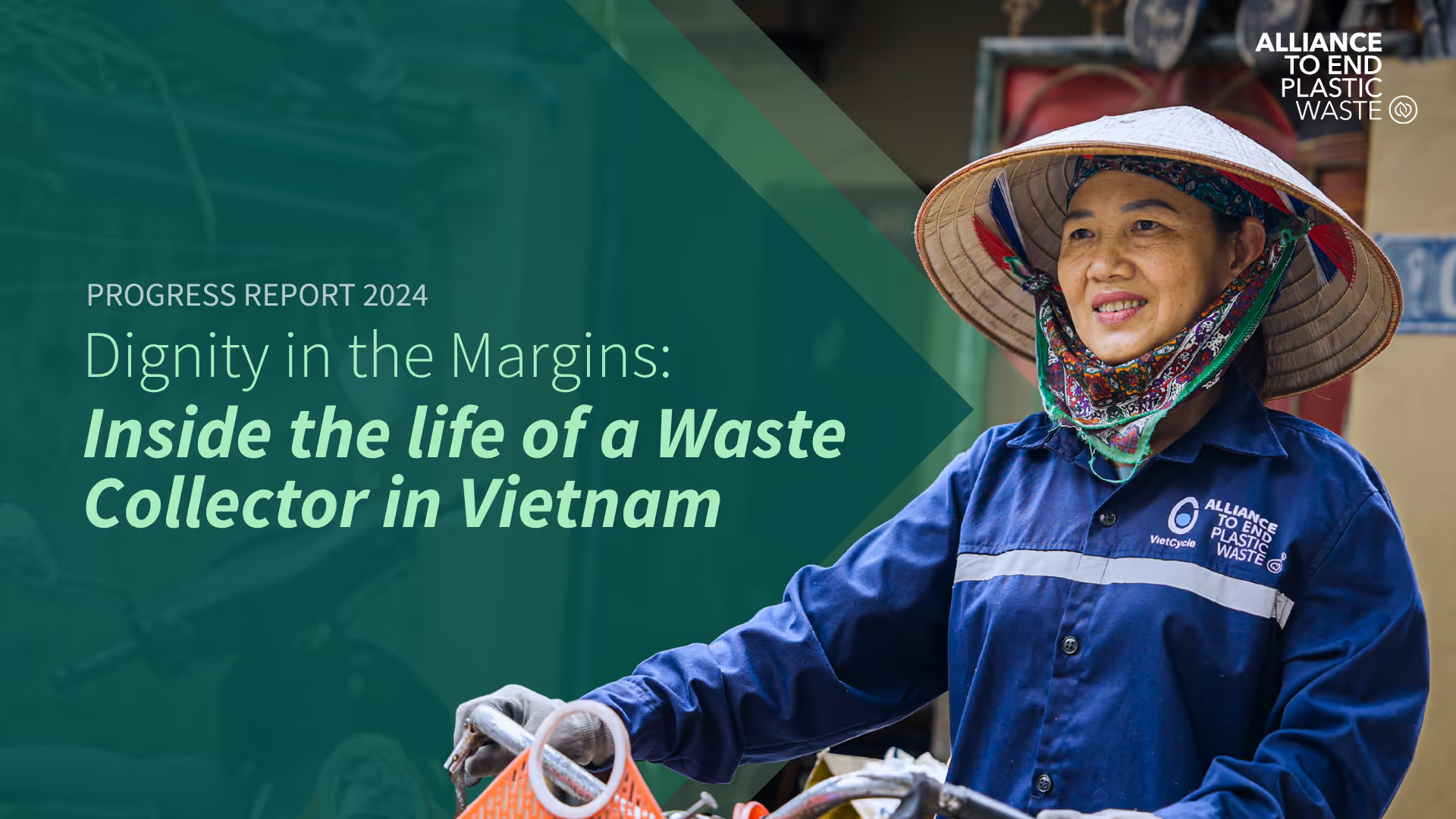
Browse the report
Download Our Progress Report 2024: Evolving for Impact
For more insights into our impact and Strategy 2030, download the full report here.
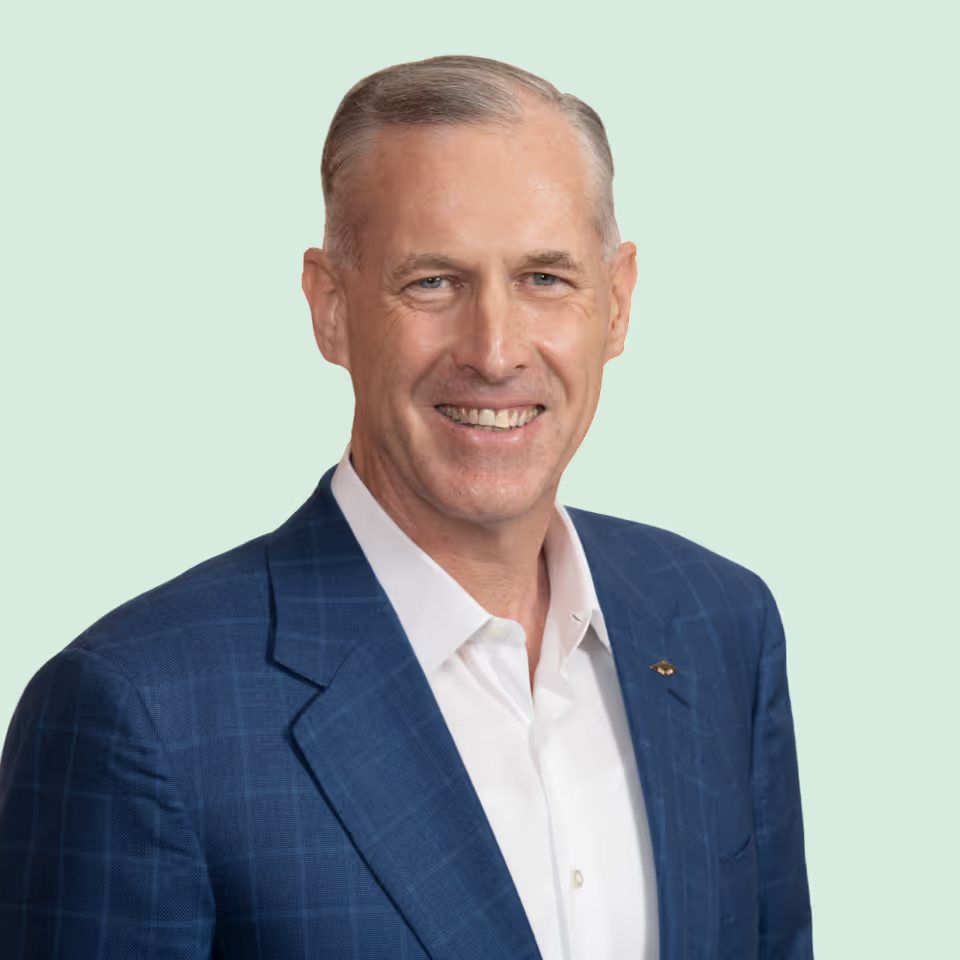
Jim Fitterling
Chair, Alliance to End Plastic Waste
Chair & CEO, Dow Inc
Chair’s message
The Alliance has continuously sought to expand and deepen its global network of like-minded partners. In 2024, the Alliance directly engaged over 740 organisations to support a multitude of projects with financial and technical expertise. The Alliance unlocked significant co-financing from third parties to accelerate many of these projects. Of the US$445.13million of total revenue collected since inception, US$299.54 million was allocated to mission-related activities, which catalysed another US$610.89 million of funding commitments by other parties and impact investors.
Achieving full plastics circularity remains a highly complex and difficult task. While the Alliance continues to develop, deploy and de-risk solutions that advance its goals, its leadership team recognises the need to evolve the way the entity operates, amid a changing external environment. Five years since its establishment in 2019, the Alliance has reached an important juncture, marked by an increasing maturity of approach and a tightening of its focus to best position the organisation to deliver impact at speed and scale.
A new strategy was approved by the Alliance’s Board members in 2024. The Alliance will continue to work on improving the collection, sorting, and recycling of plastic waste—including the trialling of refill and reuse models—by developing and investing in the necessary infrastructure, technology, and innovation. Moving forward, Alliance programmes will now be larger in scale, tackling systems issues aligned with national priorities or other substantive systemic challenges that hinder plastics circularity.
Some of these programmes will focus on countries with underdeveloped waste management systems, resulting in high rates of environmental leakage. These programmes are intended to support and encourage countries to progress along the waste management maturity curve as outlined in the Alliance’s Plastic Waste Management Framework.
Other projects will focus on closing some of the biggest gaps for plastic circularity by testing cutting-edge solutions and systems-change levers. These programmes will tackle systemic issues not likely to be addressed by the country-specific programmes and will be multi-market efforts that take place in both developed and emerging economies.
As part of its Strategy 2030, the Alliance has also revamped its governance structure to streamline decision-making, while ensuring balanced representation from across the plastics value chain. The Alliance is looking to bring in respected voices from outside the organisation who can expand its collective perspectives, skills, and expertise.
Having served the Alliance as its Chair since January 2022, I am handing over my role to Tracey Campbell, Executive Vice President of Sustainability and Corporate Affairs at LyondellBasell, to lead us in 2025 and beyond. I have no doubt Tracey, alongside the new Governing Council, will ably provide guidance and oversight as the Alliance navigates its transition.
During my tenure as Chair, it was clear that one of the Alliance’s greatest strengths is the diversity of its membership. This remains true today. The systems change necessary to achieve a circular economy requires the participation of the entire plastics value chain, alongside a wide range of like-minded partners.
The Alliance’s strategic evolution is logical and timely. The challenges it aims to solve are becoming a top priority on the global agenda, interconnected with other critical environmental and development imperatives.
In many ways, this is a pivotal moment for the plastic waste issue and global efforts to create a circular economy for plastics. The Dow team and I wish Tracey and the Alliance every success in taking this agenda forward, and we remain fully committed to supporting this important ambition.
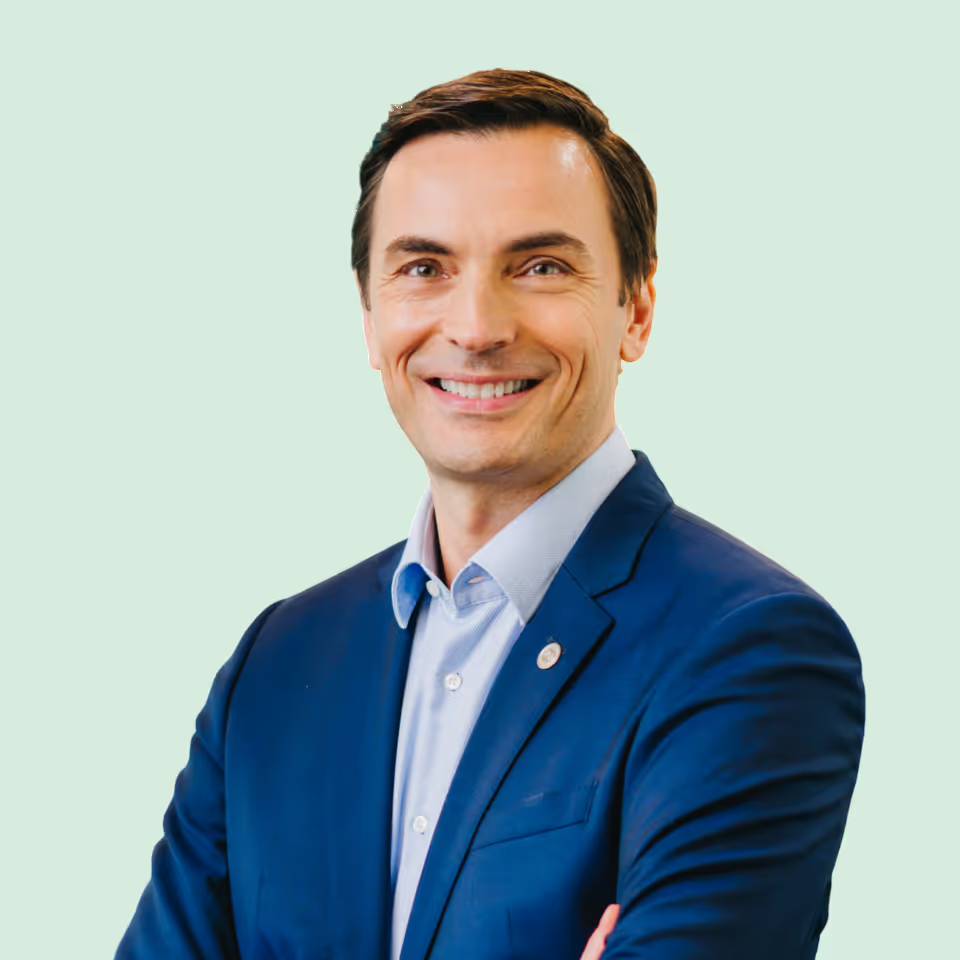
Jacob Duer
President & CEO, Alliance to End Plastic Waste
CEO's message
Our Progress So Far
Since 2019, Alliance-supported projects have diverted nearly 240,000 tonnes of plastic waste from the environment and recovered over 253,000 tonnes for valorisation, primarily through recycling. These efforts have also created more than 2,100 new jobs, demonstrating the economic potential of circular solutions.
Behind these numbers sit more than 80 innovative projects that test, refine, and scale solutions to improve plastic waste management and recycling. These initiatives often operate at the frontier of what’s possible — whether in regions with high waste leakage, emerging economies with limited infrastructure, or with cutting-edge technologies, novel business models, and creative financing mechanisms.
Innovative Solutions in Action: The ParikraM Initiative
One such example is the ParikraM initiative in the sacred cities of Mathura-Vrindavan, India. With thousands of pilgrims and tourists generating significant plastic waste, the challenge is immense.
Led by Recity, a plastic waste management solutions provider, and supported by the Alliance, ParikraM has established a large material recovery facility (MRF). Owned by the city municipality and operated by Recity, this facility uses advanced sorting systems to separate mixed municipal solid waste into recyclable and non-recyclable streams. Recyclables are recovered, while non-recyclables are converted into refuse-derived fuel, reducing landfill use and environmental impact.
Strategic Shift: Alliance Strategy 2030
While projects like ParikraM are making meaningful progress, we recognise that faster, broader action is needed to truly tip the scale against plastic pollution. Our experience has shown that systems-level change is essential to eliminate plastic waste leakage and achieve full circularity.
In 2024, we launched the Alliance Strategy 2030, a bold new direction that shifts our focus from a wide array of smaller projects to larger-scale, integrated programmes designed to drive systemic change. This strategy, endorsed by our members and leadership, is backed by a clear implementation plan and a commitment to long-term impact.
Scaling Impact Through Partnerships and Financing
Our new programmes will be co-developed with governments and key stakeholders, each supported by more than US$100 million in collective financing. These multi-year ventures will address both national and systemic barriers to effective plastic waste management and recycling.
Partnerships are central to this transformation. We are working closely with Development Finance Institutions (DFIs) and other financial partners to unlock the capital needed for infrastructure upgrades, especially in emerging economies. DFIs bring not only funding but also deep integration with national governments—ensuring our programmes align with local priorities and deliver lasting change.
Looking Ahead: Enabling Global Circularity
We are also adapting our governance and operations to support this new approach, enabling greater cross-value chain participation and strategic alignment.
The conclusion of the intergovernmental negotiations for an International Legally Binding Instrument (ILBI) on plastic pollution will be a critical milestone. The Alliance stands ready to support governments in implementing national policies and the ILBI itself.
Through knowledge-sharing, capacity-building, and infrastructure development, we aim to help countries advance up the waste management maturity curve — especially in regions where the need is greatest.
Our Purpose, Our Commitment
New solutions are being tested every day. But the systems change required to end plastic waste and build a circular economy for plastics demands collective will and coordinated action.
At the Alliance, we are committed to leading this transformation — by building a united ecosystem to make plastic a truly circular material.
Trialling end-to-end waste management in East Java
Every year, Indonesia produces 3.2 million tonnes of unmanaged plastic waste, according to the UN, and more than one-third of it ends up in the ocean. Ensuring that this waste does not enter the environment and extracting value from it requires a step up in waste management infrastructure supported by sustainable business models.
The Alliance developed an integrated waste management project in the Malang Regency in East Java and is currently running a pilot. The project covers household collection, safe disposal and recycling. The Alliance provides technical support to the project and funding for infrastructure development and equipment, such as waste collection vehicles, while the Regency government provides the land for construction, workforce for the integrated system to run and covers these operational costs.
